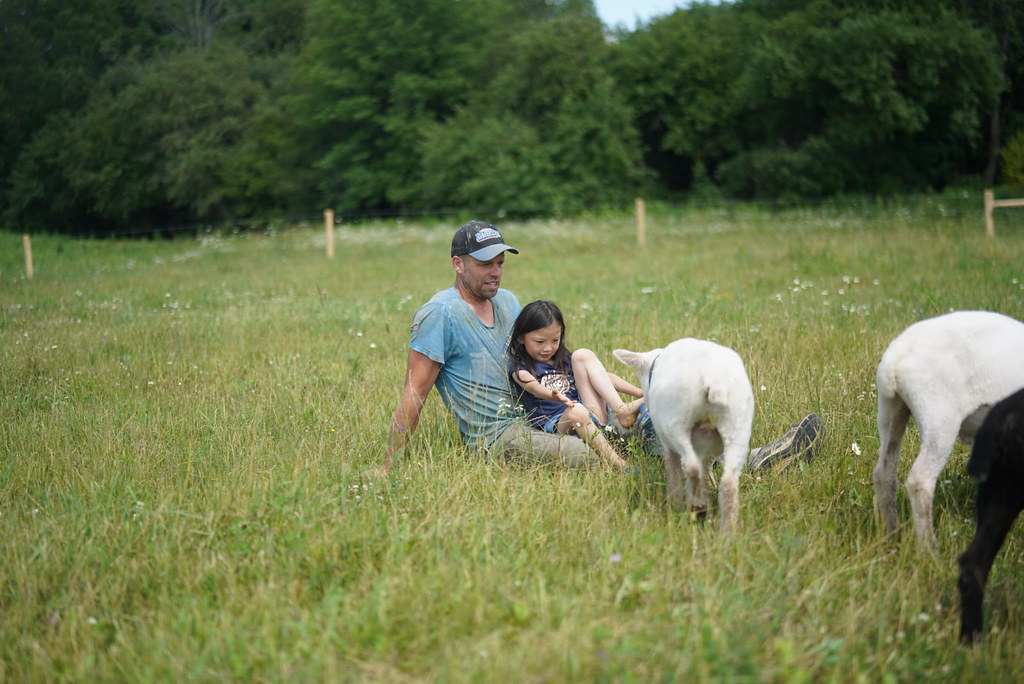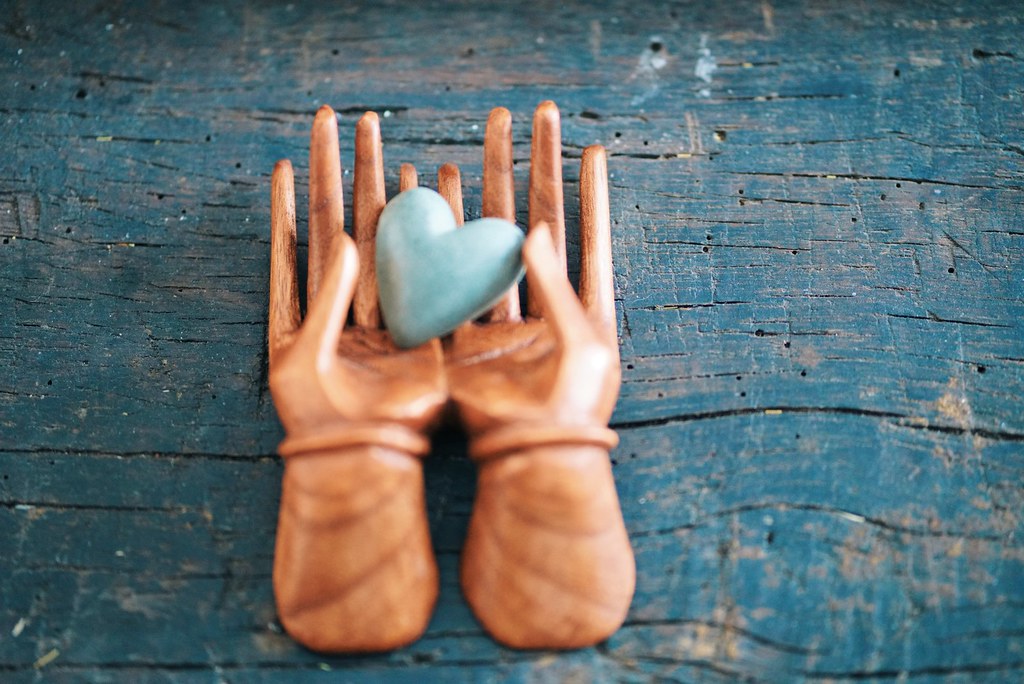When Amy Julia Becker was a kid, she knew the love that comes from approval and performance, the love that comes from accolades and awards. It was a love that left her empty and wounded. It was a fragile love that could be lost at any moment. When her daughter Penny was born and diagnosed with Down syndrome, Amy Julia began to understand love differently. She began to understand what it means when God’s love is bestowed upon us rather than awarded to us. As she describes in her most recent book, To Be Made Well: An Invitation to Wholeness, Healing, and Hope, Amy Julia began a journey of healing with Jesus, who invites us all to know the love that runs deeper than all our wounds. It’s a grace to welcome Amy Julia to the farm’s table today. . .
Guest Post by Amy Julia Becker
Sometimes my life as a Christian feels like a series of self-improvement efforts underneath a veneer of spiritual language. After years of spiritual direction and therapy and studying the stories of Jesus’ healings in the gospels, I began to wonder when “self-care” became self-indulgence, whether healing was truly possible, and whether I had the energy for it. I mentioned my weariness to a friend. She smiled and nodded and said, “Well, the only way healing happens is if the love goes deeper than the wound.”
“The only way healing happens is if the love goes deeper than the wound.“
The only way healing happens is if the love goes deeper than the wound.
Her words helped me to see that Jesus isn’t inviting me to more healing because he wants me to work harder. Jesus invites each one of us to more healing because he wants us to know God’s love more deeply. And the way Jesus gives us to know that love and receive that healing is through understanding our inherent belovedness as children of God.







“Jesus is not trying to assert patriarchy or take away God’s other roles—king, judge, Lord, creator. He is simply claiming that the primary way we are to relate to God is as children of a loving father.”
In contrast to the way God is usually named throughout the Jewish Scriptures, Jesus calls God Father. Exclusively. The only way Jesus prays is by calling God Father. In invoking this term, Jesus is not trying to assert patriarchy or take away God’s other roles—king, judge, Lord, creator. He is simply claiming that the primary way we are to relate to God is as children of a loving father.
Jesus instructs his disciples to pray using the words, “Our Father.” Elsewhere, Jesus compares God to a father giving bread to his children. He describes God as a father running to greet his wayward son with great joy. Jesus even calls his disciples “little ones,” as if to emphasize their status as children of God.
As theologian Janet Martin Soskice points out, “God is described as ‘father’ more than 170 times in the New Testament, and is never invoked in prayer by any other title. God is designated ‘father’ only eleven times in the entire Old Testament, and is never invoked as such in prayer.”
When I think of God as a father, I think of us as toddlers learning to walk. Imagine a little one who takes two tottering steps and then falls over. How does a loving mom or dad respond? Her mother doesn’t chastise her for being unsteady on her feet. She doesn’t scowl at the failed effort. She whoops with delight. Her father helps her off the ground. They take a video to commemorate the moment and celebrate.
For years, I called God Father every week at church and in my own prayer time, but I didn’t live with the certainty of that grounding love. I still tried to earn it. Then, after our daughter Penny was born and diagnosed with Down syndrome, I experienced my own deep delight in our child. I knew Penny would not grow up with the same accolades I received as a kid. She would not be valued for her grades or athletic achievements or high earning potential.
“I didn’t need to work to love her. And there was nothing she could ever do to make me love her less.”
Yet every day brought a reminder of her belovedness. Her soft skin, her sparkling eyes, her sweet expressions of care and encouragement for other people, her perseverance, her love for reading—I loved her for all the things that made her who she was. I didn’t need to work to love her. And there was nothing she could ever do to make me love her less.
I began to see that it is this type of love that Jesus wants us to receive when he insists we call God Father.
As I recognized my own deep need to receive God’s healing love, I began to pray with the simple words: God is love. Or, I am loved. Or, Love is patient. Or, I have a loving Father. I did this for many months until one day I had what I think I can call a vision. I saw myself walking toward God, and being invited to climb up into God’s lap like a little child. Before I accepted the invitation, I decided to bring God a few things. I brought my diplomas from college and seminary. I brought our three children. I brought the books I’ve written. When I was done presenting God with my accomplishments, I was ready to climb up.
I had a very clear sense of what God wanted me to understand at that moment. There’s no room for you on top of all these achievements. If you want to know my love, you’ll have to take them away.
And so I took everything away, until God’s lap was empty and I could find a place to rest. To receive God’s embrace. To be the beloved.







“We are all struggling to believe that amid our frailty and sin, we approach a God who rejoices in us.”
I told that story to a friend, and she laughed. “It would never cross my mind to bring God my accomplishments,” she said. “But I can see myself never getting onto his lap, because I insisted that other people go ahead of me. I would miss out on that invitation because I never believed it was really for me.”
We are all like bumbling children taking wobbly steps forward and falling over. We are all struggling to believe that amid our frailty and sin, we approach a God who rejoices in us. But when we begin to live in that love, when our actions flow from that love, when our behavior is transformed by that love, we receive healing. We are restored to ourselves and to God. We, the ones who are called and known as beloved, are then called and equipped to pour that same love out into the world. We become a part of God’s healing work, as we encounter the love that goes deeper than every wound.
Adapted from To Be Made Well: An Invitation to Wholeness, Healing, and Hope by Amy Julia Becker. Used by permission of Herald Press. All rights reserved.

Amy Julia Becker is an award-winning writer and speaker on personal, spiritual, and social healing. A graduate of Princeton University and Princeton Theological Seminary (MDiv), she hosts the Love is Stronger Than Fear podcast and is the author of To Be Made Well: An Invitation to Wholeness, Healing, and Hope, White Picket Fences, Small Talk, and A Good and Perfect Gift.
In To Be Made Well, Amy Julia Becker weaves together her own story with reflections on biblical accounts of Jesus’ healing work, providing fresh insight into both the nature of healing and the pathway to healing, then and now. This book is a powerful invitation to personal, spiritual, and social healing as we reconnect to our bodies and souls, to God, and to our communities. For anyone struggling with pain or loss, for anyone concerned about the things that divide us, this book goes beyond wellness and beyond miraculous physical transformations to explore how we can—personally and collectively—be made well.







